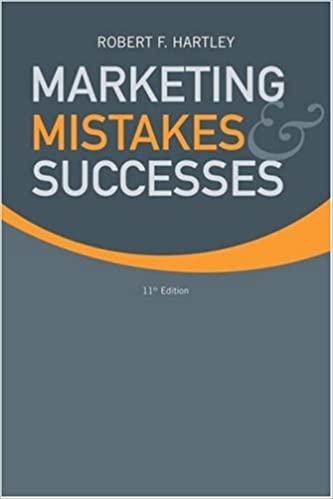Question
Challenge the middlemen Accor is a leading global hotel operator with a portfolio of 14 hospitality brands (including Sofitel, Novotel, and ibis) in 92 countries.
Challenge the middlemen
Accor is a leading global hotel operator with a portfolio of 14 hospitality brands (including Sofitel, Novotel, and ibis) in 92 countries. Recently the firm is thinking about expanding its online travel reservations via a new distribution channel---- Room Key.
At present, 35% of Acers sales were generated online. Of this, the company maintained a nearly 60/40 relationship between direct (obtained via its own websites and earned through its digital efforts) and indirect bookings(those obtain via paternerships with online travel agents).
In fact, OTAs (online travel agents) were both a blessing and a curse to hoteliers. Hotels provided the largest revenue stream for OTAs and thus were important partners. Accor benefit from this partnership. OTAs help Accor to tap into new customer bases in certain parts of the world where Accor does not have such a prominent presence, The cost of their services is quite high and Accor tend to use them for new customer acquisition, after which Accor then tries to keep Customers within the Accor ecosystem for subsequent bookings. Online travel agencies have gained huge power because they have bought a lot of key words, they have invested in building a large catalogue, and they continue to spend a significant part of their revenue on key words. They are very dynamic and are growing very fast. And they are an expensive channel.
Though Accor attempted to use OTAS strategically as new customer acquisition engines. It abhorred having to pay OTAs commissions on existing Accor customers who were booking new stays at Accor hotels on sites like Expedia or Travelocity. It's that balance Accor was trying to achieve, rather than [working in] opposition with the OTAS , As such, the company was increasing its efforts to sign up customers for its loyalty Program Le Club Accor hotels, which currently had 18 million members, 4 million of whom joined in 2014. Only 24% of loyalty program participants booked directly through Accor, which is as a huge opportunity to tip the balance of direct to indirect sales further in favor of the company. When participants booked through a third party such as an OTA, they did not earn loyalty points that earned them room upgrades and complimentary services during their stay, so booking direct improved the value proposition for consumers.
What Accor was really trying to do is make sure loyal customers think of it first. And that works--it's not just a pipe dream. In Accor's view, OTAS eat too much, but Accor is growing and is in a position to recalculate the value it can provide against that of the OTAS.
Room Key had been founded by a consortium of six major hotel brands in January 2012 with the objective of offering hotels and their guests an alternative to third-party booking services such as the major online travel agencies(OTAs). These equity owners sought to lower the cost of booking commissions paid to OTAS, such as Expedia, Priceline and Booking.com. Customers could search for room options on the Roomkey. com portal and, when finding a suitable choice, be taken directly to the brand or property website to make their booking.
Unlike traditional OTAS that spent heavily on marketing to drive traffic to their sites, Room Key targeted travel shoppers who abandoned their search without booking a room. Via a pop-under ad that redirected them to the Room Key site, the company tried to reengage prospective customers as they were departing from the six founders' websites. 4 Customers were offered the opportunity to conveniently search and shop hotel rooms from a curated list of trusted brands and then book a room directly with them.
Accor faced two options: becoming an equity partner in Room Key, which required a large upfront investment likely to be in the range of 10 million, but provided the opportunity to share in Room Keys profits, or signing on as a commercial partner, which would require the company to pay Room Key a 15 commission on each booking than the 10% that equity partners paid. With the choice of either option, Accor would incur costs to develop new online infrastructure, to communicate with individual properties, and to change its marketing messages to consumers. Would the savings in fees that Room Key promised when compared with fees charged by OTAS cover these costs and generate additional revenue by attracting new customers to its hotels?
The Room Key opportunity needed to be assessed as part of Aeor's larger digital distribution ecosystem that included the company's central corporate Portal Accorhotels. com, its 14 individual branded websites, such as Novotel com; its mobile applications; and its indirect online distribution agreements with TAS.
1. Please draw the channel structure of Accor according to the case.
2. What types conflicts (Horizontal or Vertical conflictsmay occur in such a channel? What are the two parties involved in the conflicts?
3. Why do these conflicts occur?
Step by Step Solution
There are 3 Steps involved in it
Step: 1

Get Instant Access to Expert-Tailored Solutions
See step-by-step solutions with expert insights and AI powered tools for academic success
Step: 2

Step: 3

Ace Your Homework with AI
Get the answers you need in no time with our AI-driven, step-by-step assistance
Get Started


